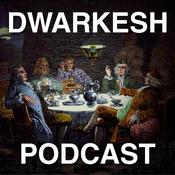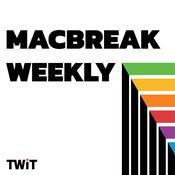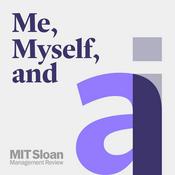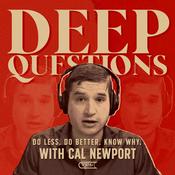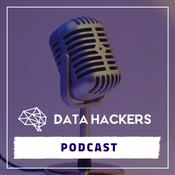180 episódios

11 Clips That Defined 2025
22/12/2025 | 56min
Well, 2025 is already running by with a massive whoosh sound. It goes without saying that every year feels like it is getting more chaotic, intense and yet exciting. There’s never been a better moment to go deep on risk, decision-making, complex scenario analysis and more, and that’s precisely what we did across 45 episodes of Riskgaming this year. We covered the gamut from espionage and defense to artificial intelligence to space technology, and a bunch of subjects in between.To highlight some of the most profound moments of the year, host Danny Crichton teamed up with Riskgaming’s producer Chris Gates to track down the very best clips from the podcast this year. From dozens of hours of episodes, here are our favorite minutes sprawled across 11 clips in one tidy package for your holiday listening.We don’t do a predictions episode — we’re too smart for that in this frenetic and ever-shifting world. If past is prologue, then these 2025 clips offer the best of what’s in store. Scary — and hopeful — times are ahead.

Can software platforms reverse enshittification?
17/12/2025 | 38min
Software kind of sucks these days, doesn’t it? Cory Doctorow invented the word “enshittification” to describe a pattern he repeatedly observed across software platforms. They start generous and flexible, but over time, they increase their value capture to maximize profits at the expense of their users. Software ends up feeling over-optimized and hostile, constantly fighting our desires. But software ultimately is for us, and there must be a better way.Well, there is, at least in theory. A coalition of software and tech luminaries, joined by hundreds of supporters, recently launched the Resonant Computing Manifesto. They want software that is private, dedicated, plural, adaptable and prosocial — the antipode of the offerings available to us today. It’s a fresh vision, one desperately needed as LLMs rapidly democratize software engineering to everyone.Riskgaming host Danny Crichton and The Orthogonal Bet host Sam Arbesman jointly host this special episode with Alex Komoroske, founder of Common Tools, which dubs itself a new fabric for computing.The three talk about the manifesto, how LLMs are changing software design, the same origin paradigm, fully homomorphic encryption, remote attestation, and whether it is possible for software to be good and also be profitable.

The inside story of the billionaires fighting for space
10/12/2025 | 43min
The space race was once between the United States and the Soviet Union; now it’s between two tech billionaires trying to seize the mantle of most powerful space lord. For Elon Musk and Jeff Bezos, the development of SpaceX and Blue Origin respectively is the culmination of a lifetime commitment to technology growth and science fiction. It’s also increasingly a ferocious campaign, one that has turned them from experimental pioneers to aggressive businessmen hoping to seize the future of space’s GDP for themselves.All of this is ably documented in Christian Davenport’s new book, “Rocket Dreams: Musk, Bezos, and the Inside Story of the New, Trillion-Dollar Space Race.” A follow up from his massively popular book “The Space Barons,” the book chronicles the last seven years of the new space race with alacrity and intimate details.Christian and Riskgaming host Danny Crichton talk about how he transitioned from covering Afghanistan and America’s home front in the War on Terror to covering the crazy billionaires at the heart of the space race. Then they talk about Musk’s fight over the United Launch Alliance, why Blue Origin has been taking on more risks in recent years, NASA and the government’s growing dependency on private companies for manned spaceflight, what the next decade of the space economy will look like, and finally, how China is entering the picture in a frenetic way.

Why AI safety is like a bolt in a croissant
03/12/2025 | 48min
As we’ve crossed three years since OpenAI debuted ChatGPT in 2022, AI technologies have gone from a curiosity among academic scientists to one of the most popular products ever shipped. Billions of people now use AI for everything from sundry amusements to mission-critical applications, and it has started to diffuse into nearly every industry imaginable. But along with such power comes great responsibility, or at least, one would hope.Jacob Ward — the former editor of Popular Science, long-time tech correspondent, podcast host of Rip Current and the author of the popular book The Loop — is skeptical. Via his own personal experiences and reporting, he sees AI’s addictive qualities and its lack of safety as a serious challenge for regulators and society as a whole. He analogizes this challenge with the cultures of software and hardware engineers, where software is about “if we ship, then we're going to sort it out” and hardware is about how “scale compounds your problems.”Alongside host Danny Crichton, the two talk about biases and decision-making, the connections between AI and casino gambling, why LLMs are like experimenting on people in the wild, how to think about regulating edge cases, ex-anti legal frameworks, Nita Farahany’s idea of cognitive liberty and why product enthusiasm is not a substitute for safety.

How to be a polymath
19/11/2025 | 39min
Everyone loves a good Renaissance man or woman, but it’s hard to do it all with tenacity and verve. There’s also the constant balance between perfectionism and dilettantism — how long should you keep refining a project versus just bringing it to a close? For those of us prone to procrastination, even asking that question might prompt a delay.That’s why I am excited to bring my good friend Uri Bram on the podcast this week. He’s written a book on Bayes’ theory, has been a publisher of a very successful online newsletter, has hosted olfactory gallery parties, and he just published his first party game called Person Do Thing inspired by trying to order vegan food at a restaurant in Thailand. In short, he’s constantly experimenting with new forms of media and ways to bring people together.Together with host Danny Crichton, we talk about perfectionism and whether it helps or hurts creativity; Uri’s experience playing Riskgaming; his new game; communications and the curse of knowledge problems; using Amazon as a social networking tool; and his recent viral blog post, “21 Facts About Hosting Parties.”
Mais podcasts de Tecnologia
Podcasts em tendência em Tecnologia
Sobre Riskgaming
Ouça Riskgaming, CBN Tecnologia - Techtudo e muitos outros podcasts de todo o mundo com o aplicativo o radio.net
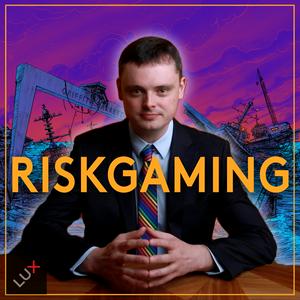
Obtenha o aplicativo gratuito radio.net
- Guardar rádios e podcasts favoritos
- Transmissão via Wi-Fi ou Bluetooth
- Carplay & Android Audo compatìvel
- E ainda mais funções
Obtenha o aplicativo gratuito radio.net
- Guardar rádios e podcasts favoritos
- Transmissão via Wi-Fi ou Bluetooth
- Carplay & Android Audo compatìvel
- E ainda mais funções


Riskgaming
baixe o aplicativo,
ouça.





